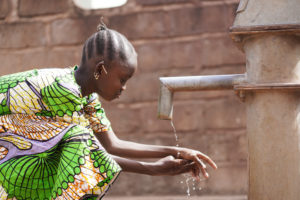A few weeks back, during good old pre-COVID-19 days, a friend in the feminist circle received an alarming message on Facebook. It was from her ‘Facebook friend’ who was conversant with her activism in the fight against inequality. They needed help for a neighbour who had just come home from the hospital after childbirth. Sadly, she was being battered by her husband right after he brought her back home. The new mother was adamant about leaving home immediately but was worried her husband could kill her if he came back.
My friend reached out to a few advocates and finally landed on the Association for Women’s Sanctuary and Development (AWSAD). AWSAD runs Shelters that support women to rebuild their lives after experiencing violence. The organization has a shelter with counselling, training, legal aid and medical care. Luckily they had space in Addis Ababa, and the woman was accepted.
With Covid-19 pandemic restrictions on movement and the subsequent rise in domestic violence, cases got me thinking, what if the case of that new mom had happened now? Would she have a chance to run away from the surveillance of her husband? Maybe not.
Violence against women is highly prevalent. Intimate partner violence is the most common form of abuse. According to the World Health Organization (WHO) ‘s brief on ‘Covid-19 and Violence Against Women, globally, 1 in 3 women worldwide have experienced physical and/or sexual violence by an intimate partner or sexual violence by any perpetrator in their lifetime. Most of this is intimate partner violence.
Violence against women tends to increase during every type of emergency, including epidemics. Ethiopia reported its first Coronavirus case on March 13, 2020. Schools closed on March 16, at the same time international organizations based in Addis announced for employees to work from their homes. After a week or so, government institutions ordered up to 70% of their employees to do the same.

Data on the prevalence of Violence Against Women after the COVID-19 emergence in Ethiopia is yet to be released, but it’s evident that domestic violence is rampant. According to the 2016 Ethiopian Demographic and Health Survey report, nearly one quarter (23%) of women have ever experienced physical violence while one in ten women (10%) have ever experienced sexual violence. More than one-third (34%) of ever-married women have experienced spousal violence, whether physical or sexual or emotional.
Organizations working on violence against women have stressed that the disruption of social and protective networks, and decreased access to services can all exacerbate the risk of violence for women. As distancing measures are put in place, and people are encouraged to stay at home, the risk of intimate partner violence is likely to increase. Women already in an abusive relationship and their children will be further exposed to violence as families spend more time in close contact with additional stress and potential economic or job losses. Women may have less contact with other family and friends who may provide support and protection from violence.
Faced with evidence that restrictions increase the risk of violence against women in homes, the Supreme Court of Ethiopia has responded by adding Domestic Violence cases among the urgent cases to be heard by courts.
All other court duties were suspended due to temporary closure by the pandemic. Still, this special attention given to violence against women is an intervention that could go a long way to ensure access to justice is guaranteed.
Responders like the Ethiopian Network of Shelters, a coalition of organizations who are providing shelter and rehabilitation in the country, have opened an emergency shelter to give refugee to survivors during the lockdown. The need to open an emergency shelter arose when the existing shelters stopped accepting new entrants to protect women and children already sheltered from COVID-19.
While these are commendable positive measures to help survivors, there remains no rescue mechanism for survivors to access such facilities and services if they report domestic abuse. They have to follow routine procedures where they report to the nearby police station or Women’s Affairs Offices and government structures to get referred to emergency shelters.
The Only Gender-based Violence (GBV) hotline service ran by Setaweet, a contemporary feminist organization, suspended its service to protect volunteers and workers from COVID-19. Another concerning issue is the discontinuation of reproductive health-related services due to the pandemic. A report by UNFPA states that ‘millions of more cases of violence, child marriage, female genital mutilation, unintended pregnancy expected due to the COVID-19 pandemic.’ The agency also warned that 47 million women may lose access to contraceptives if the #coronavirus lockdown carries on for 6 months.
In Ethiopia, one of the leading SRHR service providers, Marie Stopes, announced it would provide demand-based house to house family planning and reproductive services. It is not clear if the services are accessible beyond the capital Addis Ababa and regional cities, to rural areas where the majority of Ethiopia’s population resides.
As a country with limited resources to tackle multifaceted challenges presented and aggravated by the pandemic, all sectors and response efforts must look into the differential needs of vulnerable women and girls. However, there’s limited structure and capacity to ensure gender-sensitive response in every aspect hence the need for constant advocacy, especially so in these times of heightened vulnerability.
That is why Activism Must Continue, That is why feminism must continue.
Feature Photo: a woman in Harar, Ethiopia by Tran Qui Thinh / Shutterstock.com
